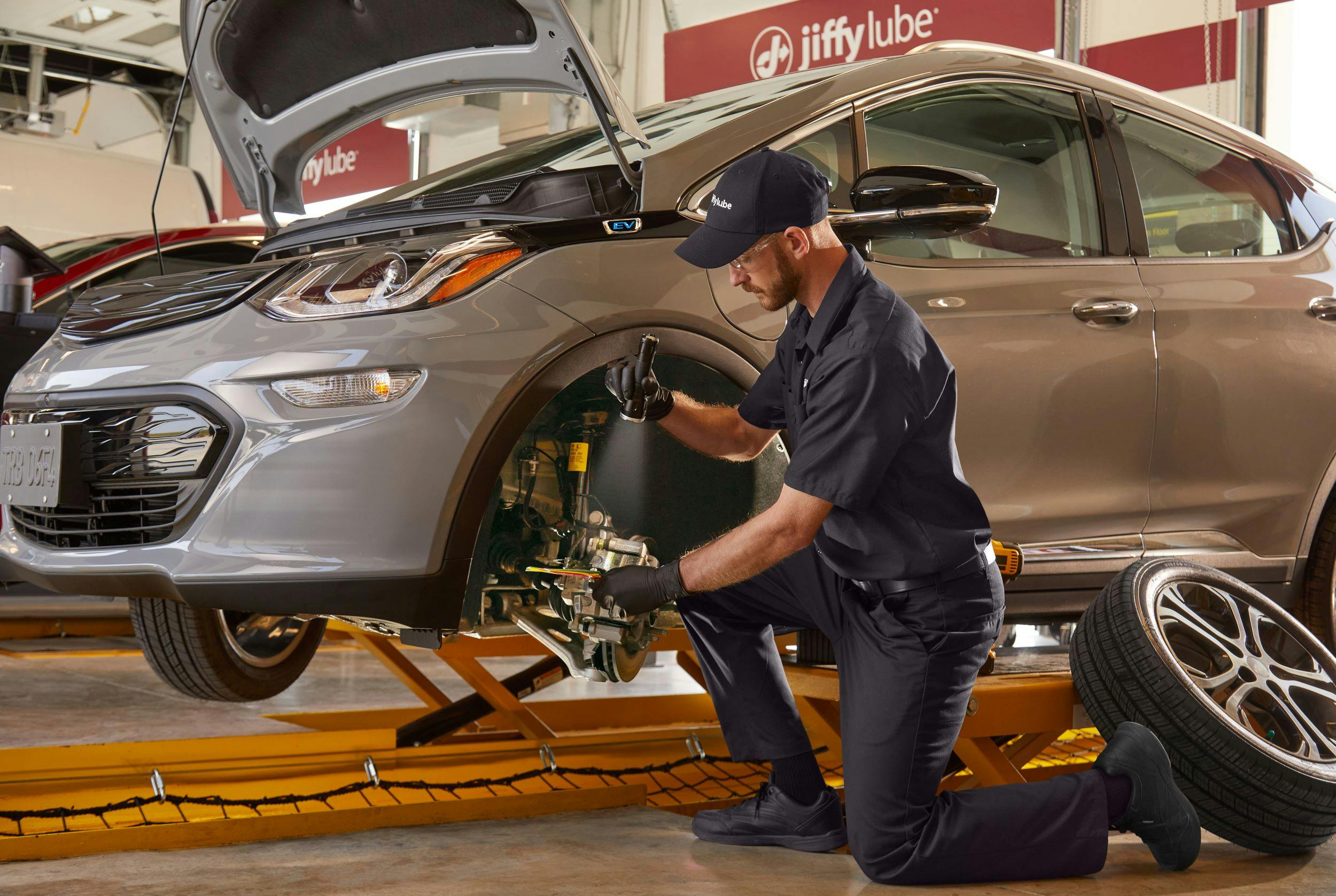It seems that every day, there are more and more electric vehicles on the road. And while these vehicles look a lot like traditional gas-powered vehicles (or even identical), the truth is that their maintenance needs are unique. Let’s cover some of the most frequently asked questions about electrical vehicles and electric car maintenance, starting with the major one: do electric cars use oil?
DO ELECTRIC CARS USE OIL? WHAT ABOUT HYBRIDS?
We’ll tackle the big question first: do electric cars use oil? No. But it’s important to distinguish between true electric vehicles (EVs) and hybrid vehicles. Electric vehicles are powered by a battery and an EV engine with an electric motor. There are no pistons, valves, or other moving parts that require lubrication, and therefore, EVs don’t use the traditional engine oil that would help maintain those parts.
In contrast, hybrid vehicles do contain an internal combustion engine, which charges the batteries and provides assistance in powering the vehicle. The internal combustion engine in a hybrid vehicle requires the same maintenance and care as the engine in a traditional car. Just like in those vehicles, the engine in a hybrid requires periodic oil changes to prevent overheating and maintain the health of the engine. So, a hybrid vehicle does require engine oil, but an EV does not.
WHAT ELECTRIC CAR MAINTENANCE IS REQUIRED, THEN?
When you invest in an EV, you can say goodbye to oil changes for good. But an EV still requires preventative maintenance. And just like owning a car with an internal combustion engine, you can expect to visit your preferred maintenance provider for occasional tune-ups. The good news is that an electric car engine typically eliminates more than two dozen moving parts when compared to a traditional gas-powered vehicle. But while an EV requires less maintenance overall, there are still a few areas that require your attention:
BATTERY COOLANT
Like vehicles with an internal combustion engine, managing heat is the major challenge for electric vehicles. To counteract the heat generated by an EV’s lithium-ion battery, the vehicle contains coolant that helps regulate the temperature of the battery, power inverter, and cabin heater. While the cabin heater is less important, these other components are critical to the vehicle’s safety and performance. So, battery coolant should be checked routinely in an EV.
BRAKE PADS
While EVs are powered differently, they still use brake pads to stop. So, brake pads should be periodically checked and replaced. However, because EVs use a regenerative braking system, you can expect to see less wear on your brake pads and service them less frequently than a traditional vehicle. This regenerative braking system is another clever innovation of EVs—it converts kinetic energy into electric energy to help generate more power for the vehicle. Because this braking system is so important for both safety and power generation, checking the system is a key service of an electric car service visit.
MAINTAINING THE SOFTWARE
All modern vehicles contain an engine management system within their software, and that’s no different for electric vehicles. While your EV should come set up with the latest software, some EV manufacturers are also able to send over-the-air updates to provide your vehicle with new enhancements. This makes software updates at the dealership unnecessary, giving you new features and efficiency-boosting tweaks without another service visit. If you’re driving an EV, ask your manufacturer how to stay up to date with the latest software.
TRANSMISSION FLUID
Do electric cars use oil? Nope. But some still use transmission fluid. It’s not common, but it’s important to know for sure. So, if you own an EV or are considering buying one, make sure to consult the owner’s manual to find out any requirements for transmission fluid.
IS IT EASIER TO TAKE CARE OF AN ELECTRIC VEHICLE?
In the short term, absolutely. Because EVs are simpler overall—and there are fewer complex parts in an electric car engine—your most frequent tasks will be things like lubricating door hinges and inflating tires to the proper levels. As a day-to-day car owner, there are certainly fewer things to worry about.
WHAT ARE THE LONG-TERM COSTS OF AN ELECTRIC VEHICLE?
Most drivers of EVs don’t plan to keep their vehicles for ten years. But if they do, they should probably expect some major electric car maintenance needs. Approximately every seven years, an EV requires an extensive coolant service that involves draining, cleaning and refilling all of the car’s coolant lines. At this time, the power-transfer circuitry will also need to be examined, and components may need to be replaced, including the inverter and electric motor. At about 300K miles or 12 years of consistent use, the battery in an EV could also require replacement. All of these can be costly services, with the battery replacement alone costing between $1,000 and $6,000 installed.
Electric vehicles offer an array of benefits. But like traditional vehicles, they do require maintenance and repairs. So, a savvy car buyer will ask more than just “Do electric cars use oil?” They’ll also ask themselves how long they plan to keep their EV and evaluate the long-term costs. That way, they can drive into the future with confidence and peace of mind. At Jiffy Lube®, our trained technicians are here to help with your car maintenance. So, whether you have a gasoline, diesel, or electric vehicle, Jiffy Lube can keep you moving.

READ MORE ABOUT IT
Want to keep your current vehicle running its best? Find out how Jiffy Lube technicians can help you determine the ideal vehicle maintenance schedule.
Learn why oil is the lifeblood of a gas-powered vehicle, and what happens if you don’t change your oil.
Please note: Not all services are offered at each Jiffy Lube® location. Please check with your local Jiffy Lube® service center or visit jiffylube.com for specific services offered.


